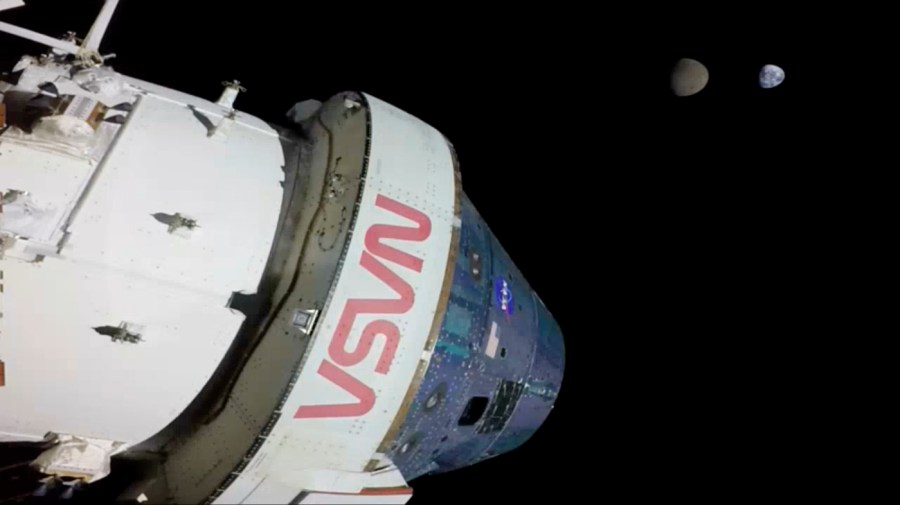NASA funding is an ugly casualty of the ‘big, beautiful bill’

The “big, beautiful bill” recently signed into law enacted a number of tax, spending and regulatory measures. President Trump and his supporters regard the new law as a triumph. Trump’s enemies not so much.
NASA spending measures are tucked inside the bill that can best be described as ugly, or at the very least ill-advised.
As Gizmodo reported, the Trump budget proposal phased out the Space Launch System heavy lift launcher and Orion spacecraft and cancelled the Lunar Gateway space station.
After the Artemis III mission, the first crewed lunar landing in decades, NASA would opt for more commercial and sustainable alternatives to maintain a moon exploration campaign. The approach was favored by SpaceX CEO Elon Musk and former NASA administrator nominee Jared Isaacman.
Congress chose to ignore the administration’s recommendations in favor of a more traditional approach.
According to Gizmodo, “$2.6 billion would go toward fully funding Gateway, $4.1 billion would support [Space Launch System], and $20 million would go to the development of Orion.”
At least until Artemis V, the return to the moon will follow the plan first set out during the first Trump presidency. The plan was proposed by Sen. Ted Cruz (R-Texas), chair of the Senate Commerce Committee.
There are two possible reasons for this divergence between the White House and Congress. The cynical explanation is that the Space Launch System, for all of its huge costs, provides a lot of jobs and money in key states and congressional districts. If the project goes away, the jobs and money go away.
The less cynical possibility is that although Congress may be in favor of a commercial approach to the moon and Mars in theory, it is skeptical that it will happen in a timely fashion. The long time the Commercial Crew took to get off the ground may be informing this, as is the trouble SpaceX’s Starship has been having not blowing up.
Whatever the reason for preserving the Space Launch System, the Orion and the Lunar Gateway, — and it may be a combination of the two suggested reasons — it seems to be a step backward in the opening to human civilization of the moon, Mars and beyond.
The Space Launch System is simply too expensive to be the centerpiece of an effective and sustainable program to send humans beyond low Earth orbit.
Fortunately, the bill is not the end of the story where NASA funding is concerned. Congressional appropriators still have to round out the space agency’s spending bill for the next fiscal year.
Congress can not only restore some of the draconian cuts that the White House has proposed for NASA’s science programs, but it can also start the end-to-end commercial lunar initiative first discussed in a recent piece in Ars Technica.
Trump has two things on his plate that he should take care of sooner rather than later. First, he needs to reconstitute the National Space Council with Vice President JD Vance at its head. The Space Council will provide a central point for space policy going forward.
Trump has named Secretary of Transportation Sean Duffy as interim NASA administrator. Duffy is an able man with political experience and an expressed interest in space. However, he will be spread thin running both the Department of Transportation and the space agency.
Trump has to nominate a permanent NASA administrator. The deep-sixing of his previous nomination of billionaire private space traveler Jared Isaacman was an incredible act of self-sabotage that has hurt NASA and Trump’s own space policy.
Unfortunately, Trump doubled down with an attack on Isaacman in a social media rant against Musk, who had recommended him.
Without using Isaacman’s name, Trump wrote that Musk “asked that one of his close friends run NASA.” He said he initially thought the friend was “very good,” but “was surprised to learn that he was a blue blooded Democrat, who had never contributed to a Republican before.”
He added, “I also thought it inappropriate that a very close friend of Elon, who was in the Space Business, run NASA, when NASA is such a big part of Elon’s corporate life.”
As Space News notes, Isaacman is a moderate Republican who donated to both parties, a common practice for businessmen (including Trump when he was in the private sector). His ties to Musk derive from the fact that SpaceX is the only company that can provide private crewed spaceflight services.
Why Trump would post such claims is open to speculation. Likely he is being lied to by staffers who dislike Musk.
If the president cannot bring himself to rectify his mistake of withdrawing Isaacman’s nomination, he needs to name a suitable replacement, and the sooner the better. Then Congress should fast track that person’s confirmation so that he or she can start to revitalize NASA as a world-class space agency.
America’s future as a space power depends on it.
Mark R. Whittington, who writes frequently about space policy, has published a political study of space exploration entitled “Why is It So Hard to Go Back to the Moon?” as well as “The Moon, Mars and Beyond,” and, most recently, “Why is America Going Back to the Moon?” He blogs at Curmudgeons Corner.